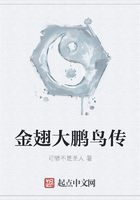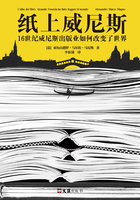WHAT HAPPENED AT THE ARCHBISHOP'S PALACE AND AFTERMaurice, as he labored before his mirror, wondered why in the world it took him so long to dress.An hour had passed since he began his evening toilet; yet here he was, still tinkering, so to speak, over the last of a dozen cravats.The eleven others lay strewn about, hopelessly crumpled; mute witnesses of angry fingers and impassioned mutterings.Usually he could slip into his evening clothes in less than thirty minutes.Something was wrong.But perhaps this occasion was not usual.
First, the hems of his trousers were insurgent; they persisted in hitching on the tops of his button shoes.Laces were substituted.Then came a desultory period, during which gold buttons were exchanged for pearl and pearl for gold, and two-button shirts for three-button.For Maurice was something of a dandy.He could not imagine what was the matter with his neck, all the collars seemed so small.For once his mishaps did not appeal to his humor.The ascent from his shoes to his collar was as tortuous as that of the alpine Jungfrau.
Ah, Madam, you may smile as much as you please, but it is a terrible thing for a man to dress and at the same time think kindly of his fellow-beings.You set aside three hours for your toilet, and devote two hours to the little curl which droops over the tip of your dainty ear; but with a man who has no curl, who knows nothing of the practice of smiles and side glances, the studied carelessness of a pose, it is a dismal, serious business up to the last moment.
With a final glance into the mirror, and convinced that if he touched himself it would be only to disarrange the perfection which he had striven so hard to attain, Maurice went down stairs.
He had still an hour to while away before presenting himself at the archbishop's palace.So he roamed about the verandas, twirled his cane, and smoked like a captain who expects to see his men in active engagement the very next moment.This, together with the bad hour in his room, was an indication that his nerves were finely strung.
He was nervous, not because he was to see strange faces, not because his interest in the kingdom's affairs was both comic and tragic, nor because he was to present himself at the archbishop's in a peculiar capacity, that of a prisoner on parole.No, it was due to none of these.His pulse did not stir at the prospect of meeting the true king.Diplomatic functions were every-day events with him.He had passed several years of his life in the vicinity of emperors, kings, viceroys, and presidents, and their greatness had long ago ceased to interest or even to amuse him.He was conscious only of an agitation which had already passed through the process of analysis.He loved, he loved the impossible and the unattainable, and it was the exhilaration of this thought that agitated him.He never would be the same again-- he would be better.Neither did he regret this love.
Even now he could see himself back in his rooms in Vienna, smoking before the fire, and building castles that tumbled down.
It was worth while, if only to have something to dream about.He did not regret the love, he regretted its futility.How could he serve her? What could he do against all these unseen forces which were crumbling her father's throne? So she remembered what he had said to her in the archbishop's garden? He looked at his watch.It was nine.
"Let us be off," he said.He started for the Platz."How uncertain life is.It seems that I did not come to Bleiberg carelessly in the way of amusement, but to work out a part of my destiny." He arrested his steps at the fountain and listened to the low, musical plash of the water, each drop of which fell with the light of a dazzling jewel.The cold stars shone from above.They were not farther away than she.A princess, a lonely and forlorn princess, hemmed in by the fabric of royal laws; a princess yet possessing less liberty than the meanest of her peasants.Nothing belonged to her, not even her heart, which was merchandise, a commodity of exchange, turned over to the highest bidder."Royalty," he mused, "is a political slave-dealer; the slaves are those who wear the crowns."Once inside the palace, he became a man of the world, polished, nonchalant, handsome, and mildly curious.Immediately after the usher announced his name, he crossed the chamber and presented his respects to the prelate, who, he reasoned not unwisely, expected him.The friendly greeting of the archbishop confirmed this reasoning.
"I am delighted to see you, Monsieur," he said, showing his remarkably well preserved teeth in the smile that followed his words."A service to her Royal Highness is a service to me.
Amuse yourself; you will find some fine paintings in the west gallery.""I trust her Royal Highness is none the worse for the fright,"Maurice replied.He also remarked (mentally) that he did not see her Highness anywhere.Several introductions followed, and he found himself chatting with the British minister.
"Carewe?" the Englishman repeated thoughtfully."Are you not Maurice Carewe, of the American Legation in Vienna?""Yes."
"May I ask you a few questions?"
"A thousand."















